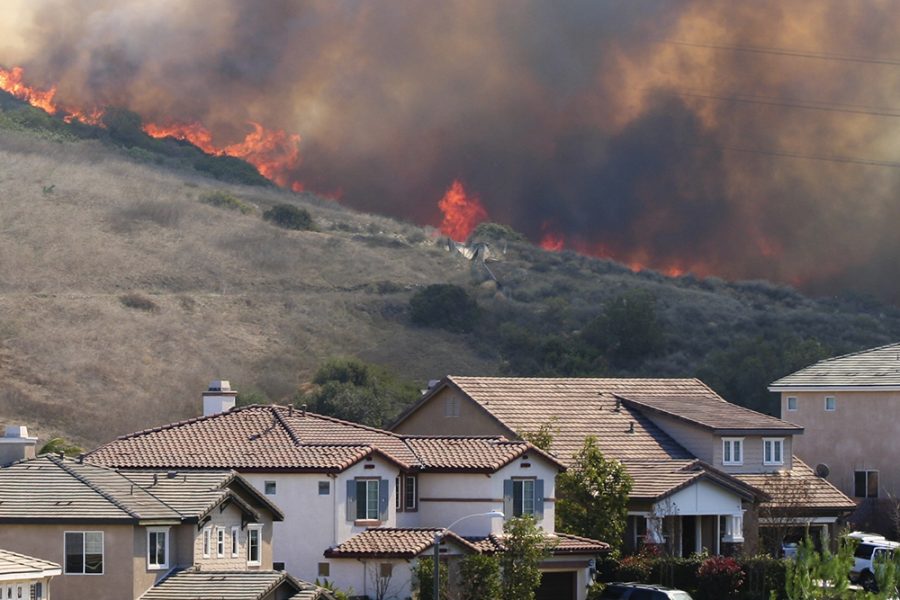When California is on fire, the rest of the country looks on with the same morbid curiosity it has when yet any of the many Old Testament plagues that shake, rattle, parch, blister and sometimes flood the Golden State. But tables do sometimes turn. Canada’s recent wildfires meant that for a time, its biggest import to the U.S. weren’t oil but heavy smoke that shut down flights, postponed ballgames and forced millions inside.
The narrative, framed by activists and politicians and spread by a willing media, says both wildfires in the West and those that have burned through Canada are caused by human-induced climate change. True to the form perfected by California politicians during fire season, Canadian Prime Minister Justin Trudeau claimed on Twitter that “We’re seeing more and more of these fires because of climate change. These fires are affecting everyday routines, lives and livelihoods, and our air quality. We’ll keep working – here at home and with partners around the world – to tackle climate change and address its impacts.”
At least Alberta Premier Danielle Smith didn’t buy the tale. According to the Canadian media, she downplayed the “link between wildfires and climate change.”
Since her province is oil-rich, it’s no surprise she’d be a dissenting voice. But her self-interest doesn’t mean she’s wrong. As is too often the case, the narrative is not aligned with the facts. We live in a society that becomes more superficial every day, which is why the global warming story gets traction so easily. Beneath the thin veneer is a deeper story that the narrative-makers want suppressed: Wildfires, whether in California, northwest Alberta, or the boreal forests of Quebec, are a part of nature.
Another story that gets buried by the spin is Canada’s fire history. The country is not “seeing more and more of these fires,” as Trudeau insists. According to the Canadian government, there is no upward trend over the last 40 years. Both the number of fires and area burned were lower in 2020 than in any year going back to 1980.
PERC, a free market environmentalist group out of Bozeman, Montana, that knows more about conservation than Trudeau or California Gov. Gavin Newsom, or anyone else from the blame-global-warming-first-and-only crowd, reminds those still willing to listen that fire is a natural phenomenon and plays a critical role in forest ecosystems. Whether started by lightning “or intentionally set through indigenous practices, fire has long served as a tool to clear underbrush, aid regeneration, and improve habitat.”
Despite this knowledge, policymakers chose a path that over the last century has turned U.S. forests into “tinder boxes” that are highly “vulnerable to catastrophic wildfire.” Forests are overflowing with accelerants: deadwood, uncontrolled brush and trees that “are packed together at up to five times their natural density.” An unwillingness to perform controlled burns and cut fuel breaks also intensifies fires. The negligence – what else can it be called? – produced fires in 2020 (the year when wildfires hardly registered in Canada) that spewed more carbon dioxide into the atmosphere than all industrial emissions combined.
It’s interesting to note that the same people who believe they can manipulate the climate by restricting human behavior – the combustion of fossil fuels that runs a modern economy – refuse to properly, and responsibly, manage nature.
California adds another layer of “arsonist” policy: Rather than use their scarce resources to update aging equipment that’s been known to start wildfires and keeping areas around power lines clear of accelerants, utilities have poured money into green projects. Could this be why the number of U.S. wildfires has remained constant since 1985 yet over the same time period they somehow grew in California?
Apparently global warming is funny that way – it impacts only select areas while leaving others untouched. Not much “global” going on there.
Kerry Jackson is a fellow with the Center for California Reform at the Pacific Research Institute.


